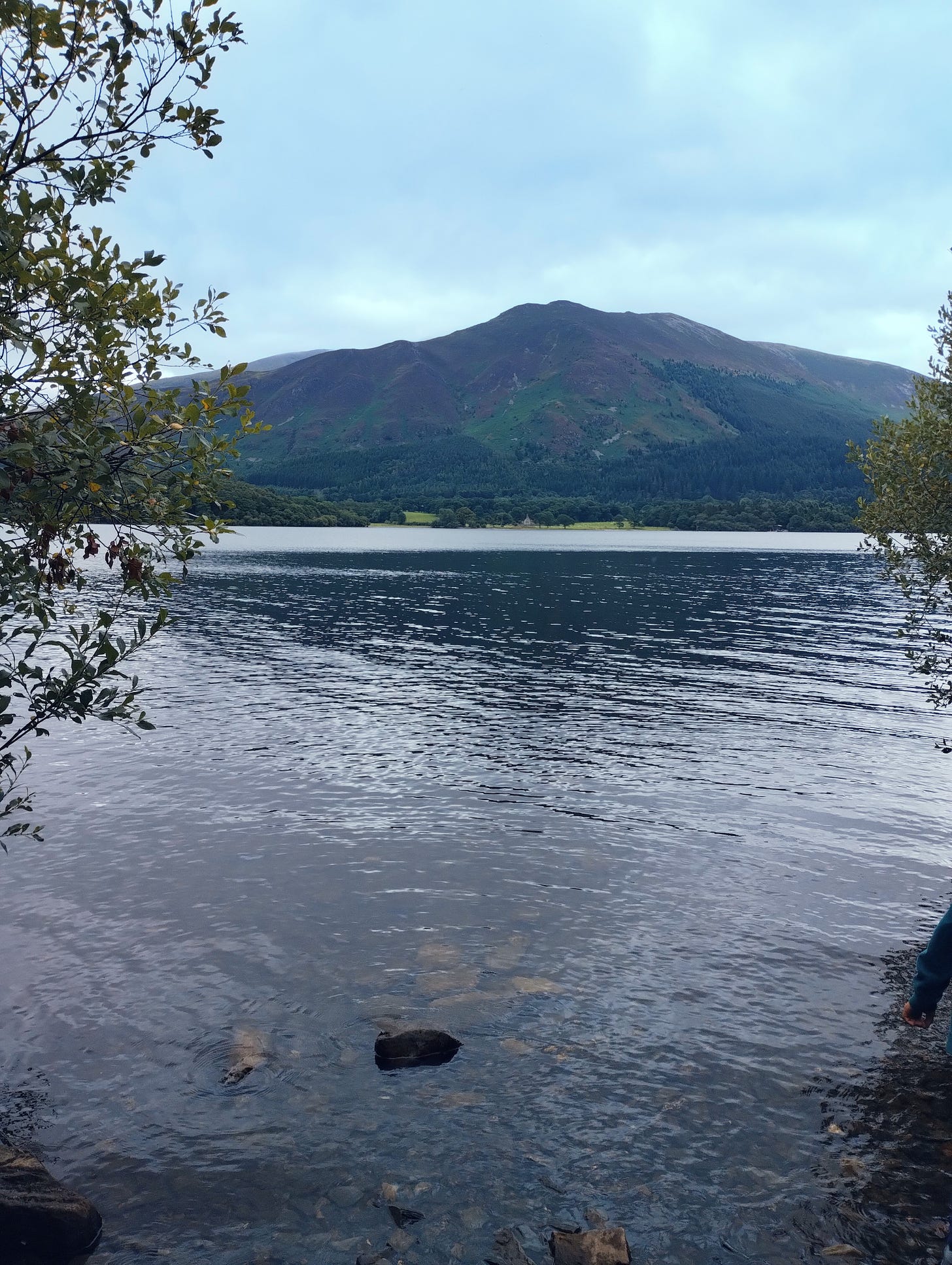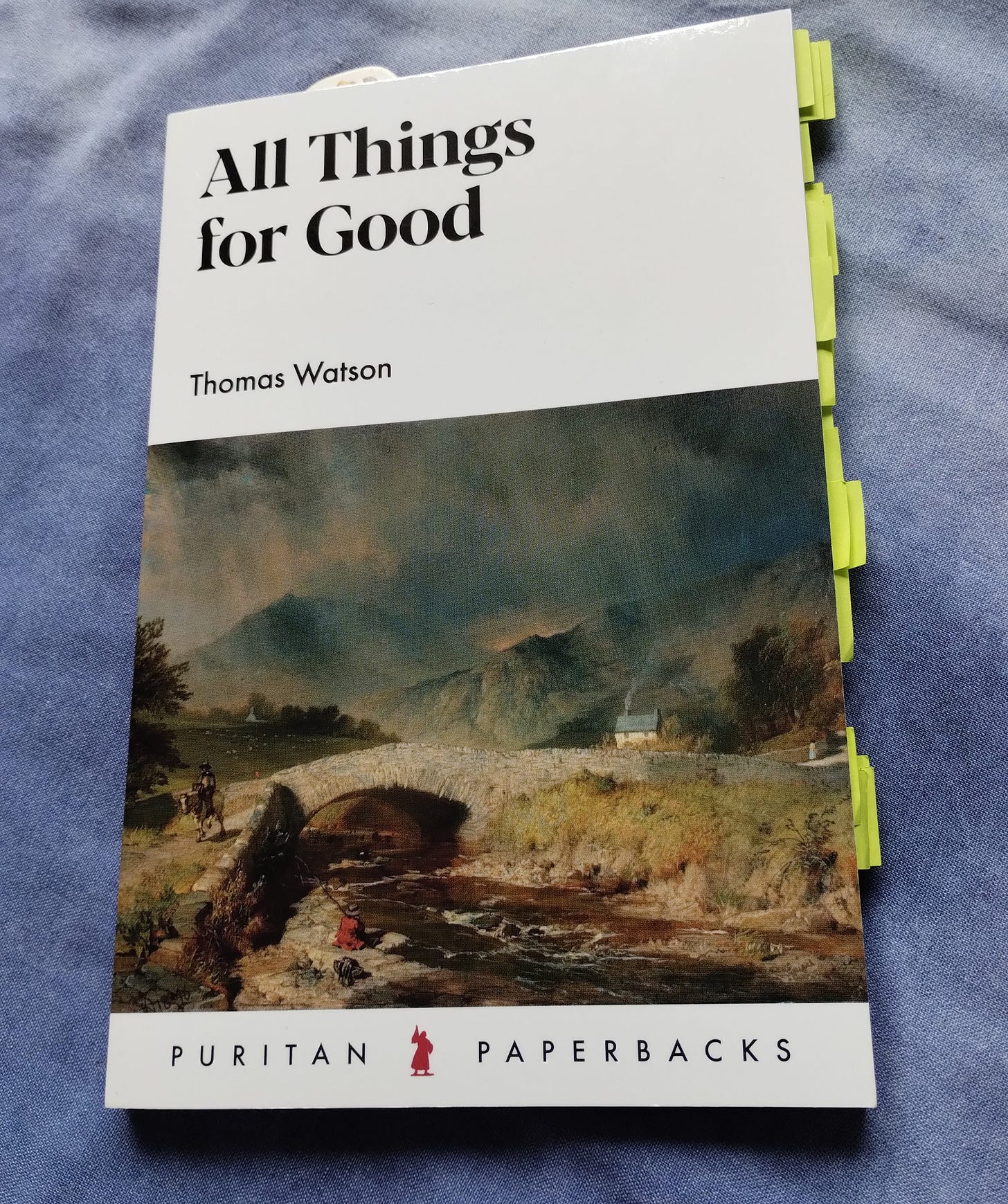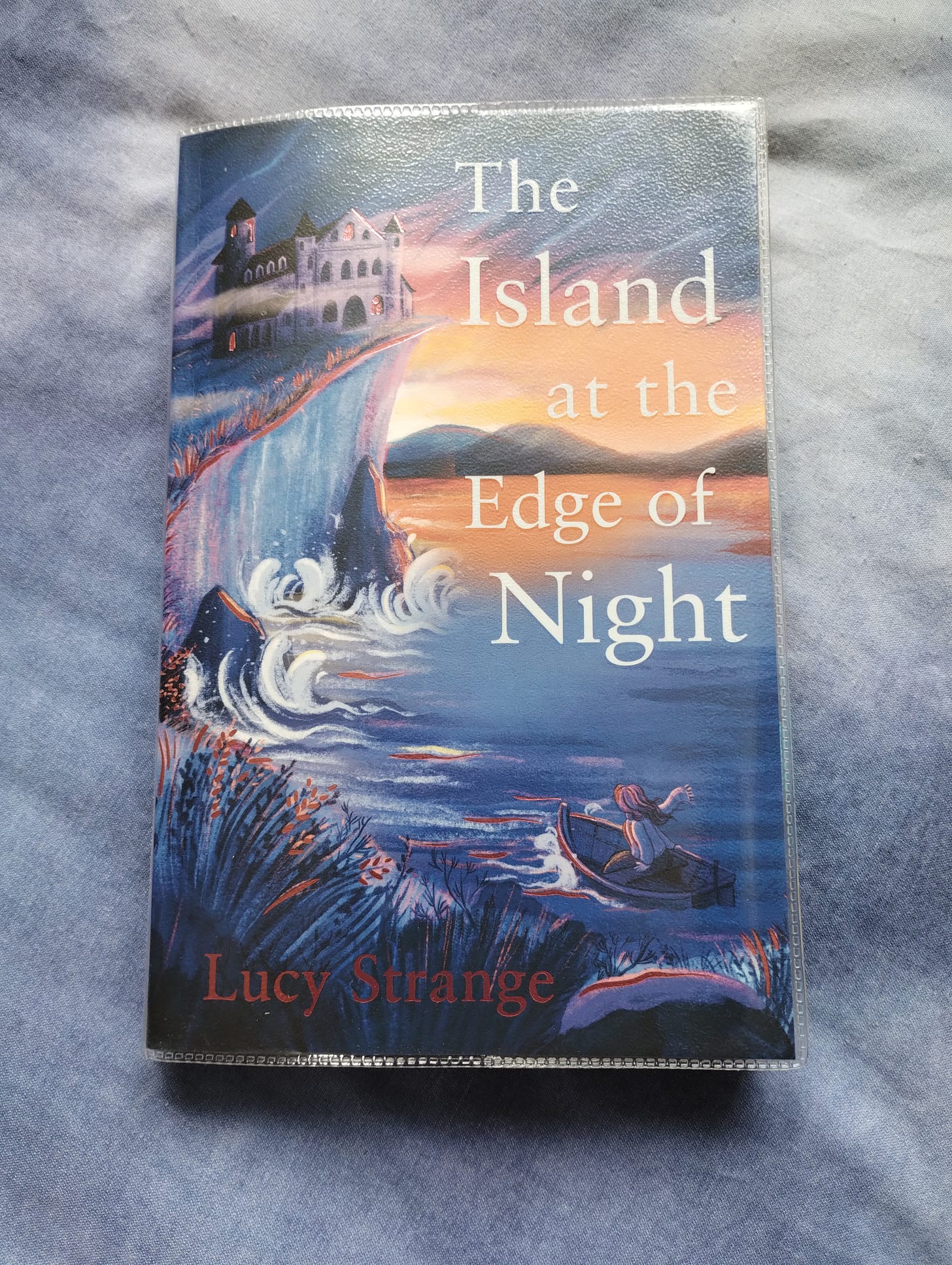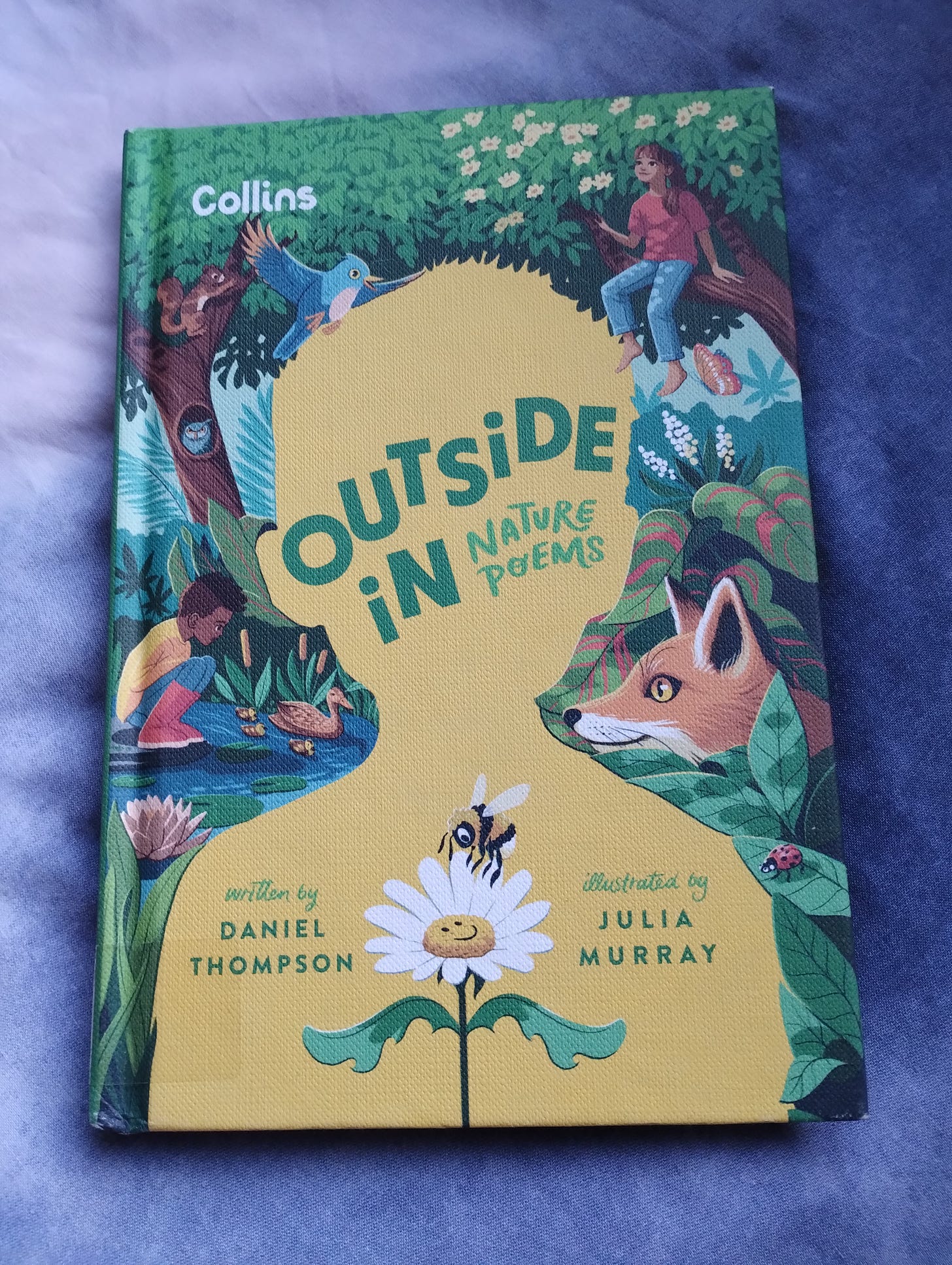Welcome to this month’s lovingly curated collection— gathered in the hope that you will be gently reoriented to what is good, beautiful and true. Considering the sheer anger and outrage present in the world today, may something here cause you to be still and know God. To be quick to listen, slow to speak, and slow to anger. Let us not be conformed to this world, but daily transformed by the renewing of our minds.
Something to ponder…Beauty as a gift and a promise.
Books
All Things for Good by Thomas Watson
From the blurb:
‘Thomas Watson, the 17th century minister of St. Stephen’s Walbrook, believed he faced two great difficulties in his pastoral ministry. The first was making the unbeliever sad, in the recognition of his need of God’s grace. The second was making the believer joyful in response to God’s grace. He believed the answer to the second difficulty could be found in Paul’s teaching in Romans 8.28: God works all things together for good for his people.
First published in 1663 under the title A Divine Cordial, the year after Watson and some two thousand other ministers were ejected from the Church of England and exposed to hardship and suffering, All Things For Good contains the rich exposition of a man who lived when only faith in God’s Word could lead him to such confidence.’
Quote from the book:
‘Let us then ascribe the whole work of grace to the pleasure of God’s will. God did not choose us because we were worthy, but by choosing us he makes us worthy’ Pg. 133
This book was both a comfort and a challenge to me (in the best way possible). Rich exhortation on God’s goodness in the midst of our suffering, which is applicable and helpful to anyone going through suffering in life. It encouraged me to resist feeling sorry for myself when navigating daily struggles, and to intentionally reflect on the good purposes God is ultimately working out. Highly recommended.
The Island at the Edge of Night by Lucy Strange
From the blurb:
‘Abandoned at a boarding school on a bleak and remote Scottish island, Faye discovers that she and the other pupils have been sent there for doing something wicked. But what is it that Faye has done?
She might be bold enough to explore the prison-like island but has she the courage to face a secret deep within herself?’
Quote from the book:
‘The sky wasn’t just above us—it was all around us: huge and dark and uninterrupted, dusty-bright with stars. It was as if the land and the sky and the sea were all one. The gusty air was rich with wet heather and sheep muck and the cold salt slap of the sea. I felt a giddy pattering in my chest. I couldn’t shake that jolt of feeling I’d had when I first set foot on the island—like a voice calling my name…’ Pg.19-20
This was a random library pick, not my usual genre either (it was described as a thrilling gothic mystery). I enjoy most children’s classics, but usually struggle with modern children’s novels. I will say that some of the themes in this book seemed more appropriate for teenagers upwards. It was definitely thrilling— I was on the edge of my seat wondering where the plot was heading numerous times. The writing was beautifully descriptive, which gave the novel a strong sense of place. Knowing it was children’s fiction reassured me that the story wouldn’t get too dark! Full of tension and suspense, with surprisingly tender moments throughout. Themes of belonging, family, friendship, shame, and fatherhood gave depth to the story. If you like slightly gothic, atmospheric books, this may be one for you. A great read for the upcoming Autumn season.
Outside In Nature Poems written by Daniel Thompson and illustrated by Julia Murray
From the blurb:
‘This collection of 50 poems will spark a love of nature, bring calm and happiness and let the outside in. Beautifully illustrated, it is filled with poems for children to read alone or enjoy with the whole family. With poems about the seasons, senses, wildlife, weather and the joys of mud, it’s the perfect gift book for children to treasure.’
Poem from the book:
Sometimes The Rain Pours
Sometimes the sun shines, and it brings inspiration,
No clouds in the blue, only hope and elation.
And with it comes joy and a deep motivation,
Oh, these are the days we feel strong.
Sometimes the rain pours, and it brings indignation,
A dark, heavy skyline of clouds in formation,
And with it comes sadness and low expectation,
Oh, these are the days that feel long.
Sometimes the storms rage and they bring expectation
Of thunder and lightening in every location,
And with it comes anger and often frustration,
Oh, these are the days we feel low.
But know the importance of each incarnation,
If sunshine was present at every occasion,
Earth would be suffering with thirst and starvation,
The world would be one we don’t know.
So next time it rains for a lengthy duration,
Or a storm grips your heart, just repeat this quotation,
Life requires more than a sunshine fixation
In order to flourish and grow.
Unfortunately I can’t endorse every poem found within this book, but for the most part it is a well crafted, clever collection of nature poems. My children and I have really enjoyed snuggling up together and reading some of them aloud. The illustrations really bring each poem to life. Well worth checking out.
Podcasts
The Quiet Place with Sherri Youngward; And Now We Live Free.
The Writers Circle Podcast; Caring For Your Soul with Jenni Burke.
The Discerning Leader Podcast; Discerning God in the Psalms.
Daily Psalms—Classical Psalms Everyday Podcast. If you like classical music, and you also like the Psalms, this is for you!
Articles

Glenna Marshall on The Goodness Grid.
‘I would have gladly taken Isaiah’s place on the operating table if I could. I would have gathered all his pain in my hands and absorbed it for him. I would have spared him if I had that power. But, I didn’t. I couldn’t. And now that I have seen the spiritual growth that pushed through the earth of his untested faith, I am not sure I would have spared him. He is stronger, surer of God’s care for him. His faith at the tender age of sixteen is as unflappable as I could ever have hoped. Lest you think me an unloving mother, you’d feel the same if you’d seen what I’ve seen.’
SDG Morgan of
on writing rhythms in Beyond Plotter and Pantser.
‘I write in phases. I have always written in phases, like seasons. There will be long fallow stretches like winter. There will be a spring time of optimism and an explosion of so many ideas I cannot contain them or write them down fast enough. Then there is the grueling summer of steady, boring heat, where these scribbled dozens of pages of notes sit in my brain, marinating, some wilting, others growing roots that go deep into my soul, and then there’s the harvest where I can sit down and write thousands upon thousands of words quickly, pulling on the slowly grown tap roots deep down in my subconscious.’
‘On Sundays, as I sit and stand and kneel in church alongside other believers, my heart is full of gladness and grief. I am glad because this is no meeting, and it is such sweet relief to be gathered with others like a river of life flowing up toward the table of the Lord. I am glad because in church we name particularly and personally the God whose glory animates forest and garden. But the other side of this gladness is grief for those who are drawn to Divine Love yet hold themselves apart from the messy, beautiful ways this Love reveals itself in community. I understand why they do this. In some cases, I’m not even sure they are wrong to do this. Real life is complicated in ways a brief essay can only begin to address.’
‘The smartest people I know are not the ones who got straight A’s in school; they’re the ones who helped their peers succeed, too.
The smartest people I know are not the ones with letters after their names; they’re the ones who remember other people’s names and make a point to reach out and connect.
The smartest people I know are not the ones who read hundreds of books every year; they’re the ones who help others read the one Book that is truly life-changing.’
‘Sometimes, I am so caught up in my own plans or in trying to understand, that I forget to enjoy the life that is before me. I spend so much time trying to get to the next thing that I am blind to the things that are here, now, that truly matter.
This is my life.
I can enjoy this, I remind myself.’
Amy Medina on seeing herself in The Poisonwood Bible.
‘I knew that The Poisonwood Bible was a best-selling novel about a missionary family to Africa, so why did it take me 25 years to finally read it? Honestly, I think I was scared of it. I knew that it painted an ugly picture of missionaries, and I feared it would make me question my calling.’
Randy Alcorn on being homesick for heaven.
‘Nothing is more often misdiagnosed than our homesickness for Heaven. We think that what we want is sex, drugs, alcohol, a new job, a raise, a doctorate, a spouse, a large-screen television, a new car, a cabin in the woods, a condo in Hawaii. What we really want is the person we were made for, Jesus, and the place we were made for, Heaven. Nothing less can satisfy us.’
‘I’ve been thinking about shame ever since finishing George Eliot’s final novel Daniel Deronda last week. Shame runs like a powerful current through the novel, shaping its narrative and characters. There are characters who feel no shame, and thus do things that bring pain and embarrassment to the people closest to them. There are characters who feel a flash of shame when tempted with hazardous decisions and yet proceed anyway, only to be almost crushed with the fear of exposure and public shame. There are two characters who are abusers who lay the shame that should be their own on the shoulders of those they abuse— and the powerful arch of those who are abused is to shake off the abusers’ power, to feel themselves unashamed.’
Andrew Wilson believes we are romantic whether we know it or not.
‘The focus on innocence, deep emotions, wild and remote landscapes, Gothic architecture, and indescribable experiences strikes us as very nineteenth century, evoking images of foppish, ruffle-haired, misty-eyed young white men staring wistfully into the middle distance.
Others, by contrast, seem thoroughly natural to us, to the extent that we do not even notice them. Inwardness and individuality, in particular, are so central to our understanding of identity and the self that we cannot fathom how people in previous centuries could possibly have thought about personhood differently.’
Interiors
This home ticks a lot of my interior boxes. Books—check, Cosy—check, Rural views— check.
A Prayer (From daily morning prayer, The Book of Common Prayer)
O God, You have made of one blood all the people’s of the earth, and sent Your blessed Son to preach peace to those who are far off and those who are near: Grant that people everywhere may seek after You and find You; bring the nations into Your fold; pour out Your Spirit upon all flesh; and hasten the coming of Your kingdom; through Jesus Christ our Lord. Amen.
This prayer is a cry of my heart. May the goodness of God comfort your hearts, may you seek the Lord while He may be found and call on Him while He is near.
Grace and peace to you and yours,
Ishah Xx









Thanks so much, Ishah for including me here! It means so much to me.